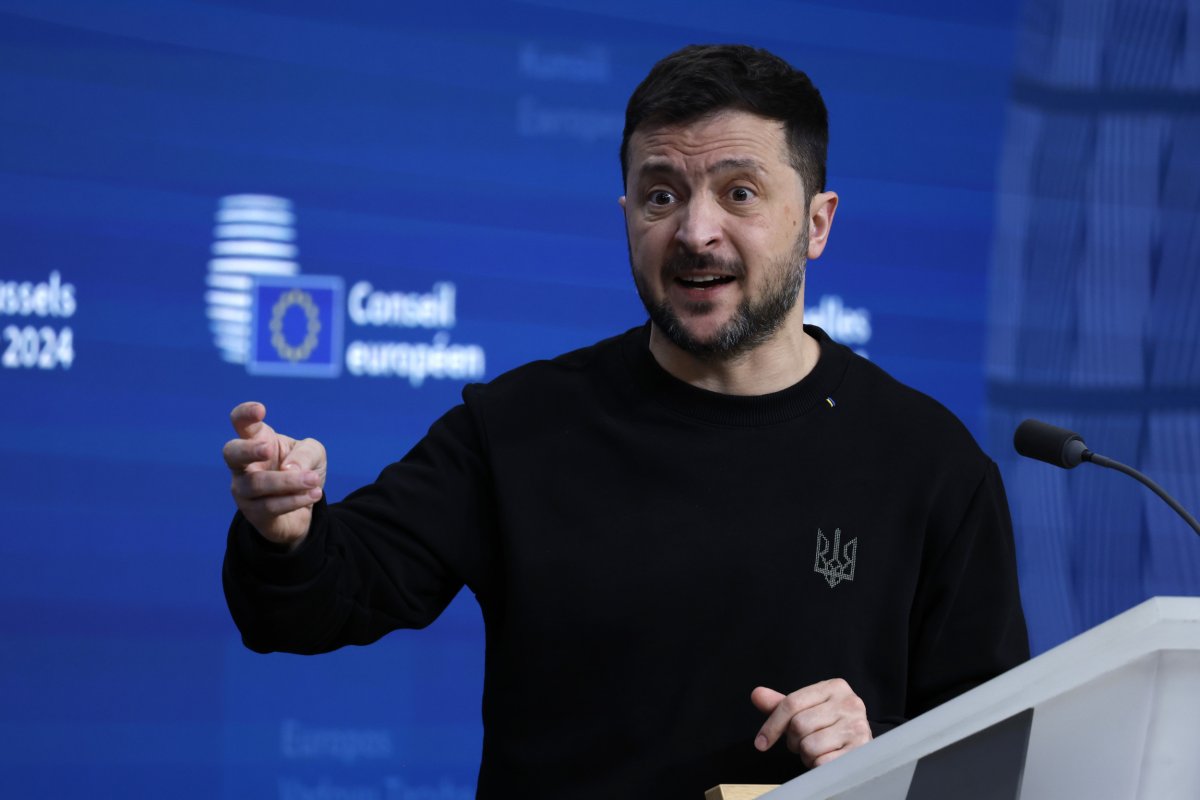Russia warns Europe will “pay the price” for Ukraine cutting off gas
Russia has claimed that Ukraine’s decision to let its gas transit agreement with Gazprom expire was influenced by the United States and warned that this move could jeopardize European economies.
“The termination of supplies of competitive and environmentally friendly Russian energy not only weakens the economic potential of Europe but also has the most negative impact on the standard of living of European citizens,” Foreign Ministry spokesperson Maria Zakharova said on Thursday.
Newsweek reached out to the U.S. State Department via email outside of business hours for comment.
Pelagiya Tikhonova/Sputnik via AP
Why It Matters
The end of the latest five-year transit agreement, which saw gas flow from Russia to Europe via Ukraine, could significantly impact the Russian economy, which is still heavily reliant on energy exports.
While it will not entirely cut off the transport of Russian gas to the continent, which can still flow through the TurkStream pipeline and via shipments of liquefied natural gas (LNG), the move will reportedly cost Gazprom nearly $5 billion annually, according to Reuters.
Eastern European countries that benefited from the agreement have also expressed concerns that the decision could lead to an energy crisis at home.
Residents of Transnistria, Moldova’s breakaway region that depends heavily on Russian gas, have already reported energy shortages following the implementation of the decision on January 1, according to the BBC.
What To Know
Following the launch of Russia’s full-scale invasion in 2022, gas continued to flow into Europe through Ukraine as a result of the 2019 agreement.
At a summit in Brussels in December, however, Volodymyr Zelensky vowed to end this deal, stating that Ukraine “won’t allow [Russia] to earn additional billion on our blood,” as quoted in Euro News.
“Ukraine did not want to renew the transit agreement because it benefits largely Gazprom and the Kremlin,” Vladimirov told Newsweek. “Ukraine has been receiving $800 million annually, much lower than it should be getting under the terms of the expired transit agreement because Russia itself has cut the volume of transit gas since May 2022.”

Omar Havana/AP Photo
Throughout the conflict, European Union members have also attempted to reduce their dependence on fossil fuels from Russia, contributing to the 2022 energy crisis.
The REPowerEU initiative, launched in May 2022, aimed to “phase out Russian fossil fuel imports” through diversifying supplies while accelerating the move toward clean energy.
As a result, the European Union claims that Kyiv’s latest decision will not drastically impact gas supplies into the continent.
“The Commission has been working for more than a year specifically on preparing for a scenario without Russian gas transiting via Ukraine,” the European Commission told AFP on Tuesday.
Experts similarly believe that the continent has had sufficient time to adapt to the anticipated cutoff.
“Most of the Russian gas supply through Ukraine went to Slovakia, Czechia, Austria, Hungary and Italy,” according to Martin Vladimirov, director of the Energy and Climate Program at the Center for the Study of Democracy (CSD), “but all of them have alternative import options, which is why there is no physical security of supply risks from the cessation of the transit contract.”
“The EU has had plenty of time to prepare for the end of Russian pipeline gas flows to European buyers,” Isaac Levi, a researcher at the Center for Research on Energy and Clean Air, told Newsweek.
“The region has had sufficient time to prepare for this adjustment, particularly the countries that remain dependent on these imports,” he added.
What People Are Saying
Russian Foreign Ministry spokesperson Maria Zakharova, via Telegram: “Let us emphasize—the Kyiv authorities decided to stop pumping blue fuel from Russia to residents of European countries, despite Gazprom fulfilling its contractual obligations…Now other countries of the formerly economically successful and independent European Union will have to pay the price for American patronage.”
Ukrainian Minister of Energy Herman Galushchenko, via the Ukrainian Energy Ministry on Telegram: “We stopped the transit of Russian gas, this is a historic event. Russia is losing markets, it will suffer financial losses. Europe has already made a decision to abandon Russian gas. And the European initiative Repower EU provides for exactly what Ukraine has done today.”
Martin Vladimirov, director of the Energy and Climate Program at the Center for the Study of Democracy, told Newsweek: “Russia was earning around $6.5 billion annually from the Ukrainian transit, which is roughly a third of its total gas earnings from sales to Europe. It will be very difficult for Russia to reroute this gas to new destinations, which will significantly hit the state-owned company, Gazprom, a major taxpayer for the Russian economy.”
Isaac Levi, a researcher at the Center for Research on Energy and Clean Air, told Newsweek: “Despite the fact that Ukraine will no longer earn revenues for the transit of Russian gas through its territory, the losses faced by Russia’s struggling gas sector are expected to be far more substantial. Ukraine’s transit fee revenues are believed to barely cover the infrastructure maintenance and operational costs required to enable the flow of Russian gas to Europe.
“Ukraine decided not to renew the agreement as this provides significant finances to fuel the Kremlin war chest, valued at EUR 5.8 bn in 2024. Maintaining flows would be highly controversial and pose significant geopolitical risks. This would likely prompt many, including the new U.S. administration, to question Europe’s commitment to supporting Ukraine.”
What Happens Next?
Europe will potentially need to adapt to the abrupt shortage in Russian gas, supplementing its supplies with LNG shipments from alternative sources, such as the U.S. and Qatar, as happened following Russia’s invasion.
On January 1, while celebrating the end of the agreement, Zelensky expressed his hopes for “an increase in the supply of American gas to Europe, as President Trump has already said.”
Do you have a story we should be covering? Do you have any questions about this article? Contact LiveNews@newsweek.com.

